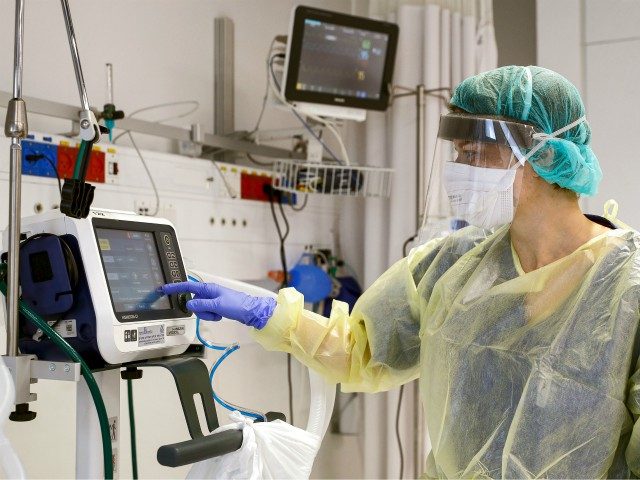TEL AVIV – The response in Israel to curbing the coronavirus pandemic has been “right on target,” a U.S. data and medical expert told the Times of Israel in an interview.
“Social distancing, travel restrictions, the testing and the hospital preparedness, the national response has all been very good,” Dr. Martin Zand said.
According to the report, Zand, a practicing physician and the senior associate dean for clinical research at the University of Rochester Medical Center in Rochester, New York, is tackling the pandemic from multiple angles.
Zand’s recent visit to Israel coincided with the diagnoses of the first coronavirus case.
He was more critical of the U.S. response to the pandemic, pointing to a “national shortage of a whole variety of supplies for COVID-19 testing.”
One of the main issues, Zand said, is in America’s decentralized health care system which means that “at a national level, you don’t have an overruling coordinator of those state efforts in the same way that Israel does” with its own, centralized, system.
“I think the most important contrast between Israel and the U.S. health care system with respect to the COVID-19 pandemic is that Israel has a centralized health care system as well as a central public health care system. That has really helped coordinate the response across the country.”
Social distancing is one of the “essential pieces” for combating the virus, Zand said, as well as staying at home and closing all nonessential businesses.
“That’s certainly what Israel did early,” Zand said. “Those are a good thing.”
American-British-Israeli biophysicist and Nobel Laureate Michael Levitt earlier this month praised Israel for slowing down the virus’ spread with early preventative measures.
Levitt, who teaches structural biology at Stanford University and spends much of his time in Tel Aviv as well as in China, became a household name in the Asian nation after accurately predicting the slowdown of the country’s coronavirus epidemic and sending waves of hope among the Chinese.
The reason for the slowdown is that exponential models wrongly assume that people with the virus will continue to infect others at a steady rate, leading to disaster.
“In exponential growth models, you assume that new people can be infected every day, because you keep meeting new people,” Levitt said. “But, if you consider your own social circle, you basically meet the same people every day. You can meet new people on public transportation, for example; but even on the bus, after some time most passengers will either be infected or immune,” he told Calcalist in an interview.
However, he added global precautions were necessary to keep the spread in check.
He noted that there have been far more tests being administered than earlier in the month but that the results were not in correlation to the ratio shown two weeks ago.
However, he slammed the government for failing to test arrivals into the country from the U.S. and other virus hotspots.
“People landing today at Ben Gurion from hotspots, from the U.S., Spain, Italy and France, simply walk into the country. Nobody checks that they are going into self-quarantine. Nobody tests them for coronavirus,” he told Channel 12 news, adding that Israel could become an “outpost of New York.”
“Everything we’ve achieved up until now will be lost,” he said.
Director-General of the Health Ministry Moshe Bar Siman Tov also expressed cautious optimism in the slowdown but said the Jewish festival of Passover next week would present a problem if people were not careful.
“We hope that this trendline will continue through Passover and that after the holiday we will be able to return to life,” he said. “We are watching the numbers and fear there will be an increase of infections around the holidays.”
Meanwhile, the director-general of the Israel Institute for Biological Research told Prime Minister Benjamin Netanyahu on Tuesday that “significant progress” was being made in the defense institute’s efforts in developing a vaccine against COVID-19 and will soon start testing on animals, a statement from Netanyahu’s office said.
His office also released a statement saying that Israel had been ranked first in the “Covid-19 Health Safety Countries Ranking” on the Deep Knowledge Group website.
The Health Ministry on Tuesday announced that there were 5,591 confirmed cases of the virus. 91 were in serious condition, of which 74 were attached to ventilators. Twenty Israelis have died from the virus, including a 49-year-old mother to four-year-old twins. 225 people have recovered from the virus.

COMMENTS
Please let us know if you're having issues with commenting.